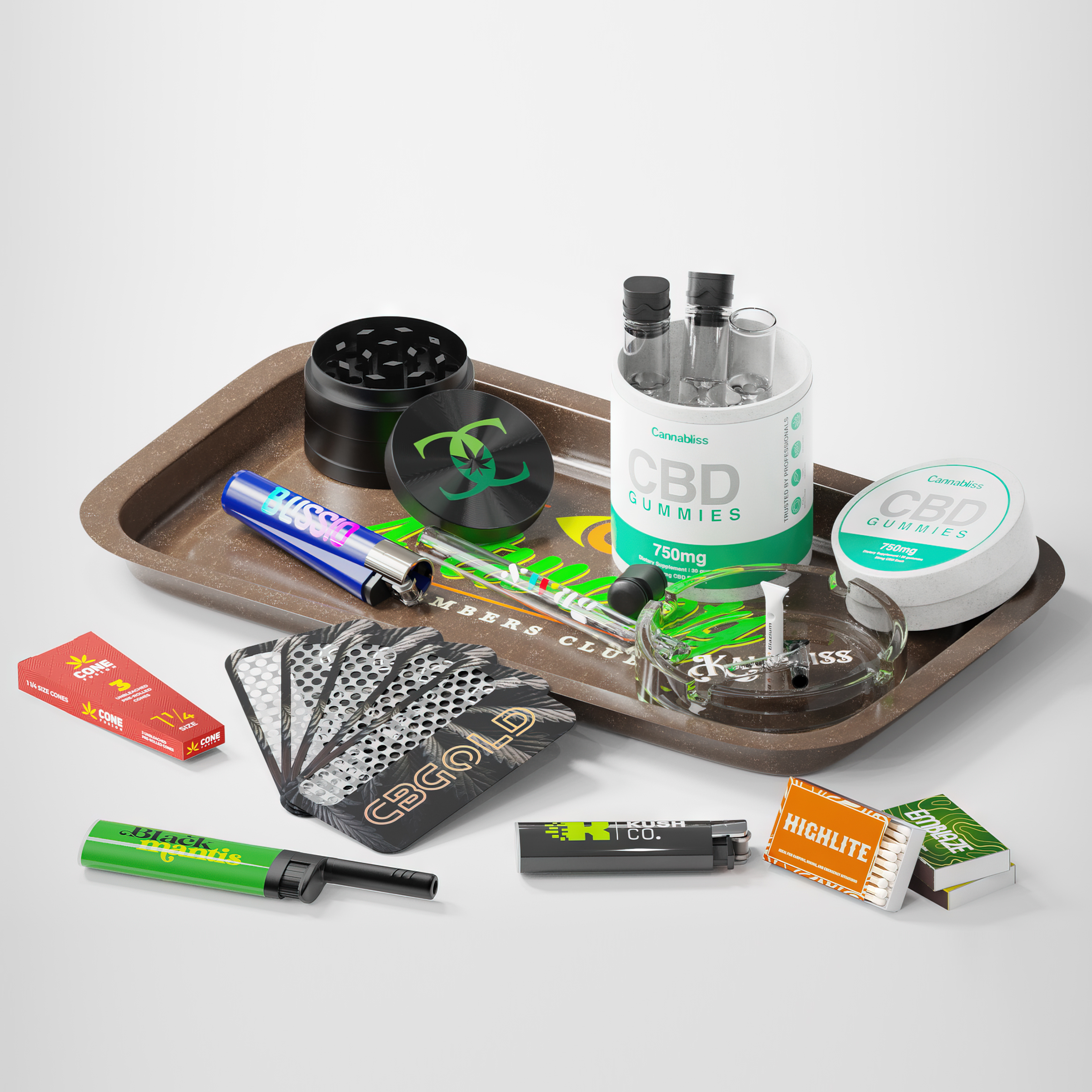When it comes to marijuana, the times, as the old song goes, are a-changin’.
It wasn’t long ago that America’s popular perception of cannabis was that it destroyed lives, serving as a gateway to even more dangerous substances, personified by an egg frying in a pan on a public service announcement. But fast-forward to 2024, and cannabis is legal for recreational use in 24 states and, according to Pew Research, 68% of U.S. adults believe they should be able to legally partake in marijuana.
In this, a large and growing legal cannabis market has sprouted, sparking ample opportunity for print companies and promotional products distributors.
Constant Growth
With each state that legalizes cannabis for recreational or medicinal usage, there’s more chance for print and promo pros to work with dispensaries, growers, and other market participants.
These are businesses that need products across the print and promotional products spectrum. Within the dispensary alone, you have items like labels, packaging, plastic containers, bags, and more. With competition springing up all the time, dispensaries need products to stand out, like stickers, apparel, gifts and other branded items that they can sell or give away to boost their own brands.
Perhaps not surprisingly then, companies have launched for the sole purpose of selling promotional products to the cannabis market, while established merch purveyors have begun offering items that appeal to end-buyers in the growing vertical.
Ryan Tickle’s firm fits into the former category. Tickle is the vice president of sales for Cannabis Promotions, a St. Petersburg, Florida-based supplier that specializes in just what it sounds like: products for cannabis dispensaries and companies. A couple of years ago, Tickle’s parents would hesitate before they told people what their son did for a living. Now that the business is growing and the attitude regarding cannabis use is changing, his parents are bragging a lot more than they’re biting their tongues.
“It used to be that people would hide that they smoked, or not tell people that they smoked,” Tickle says.
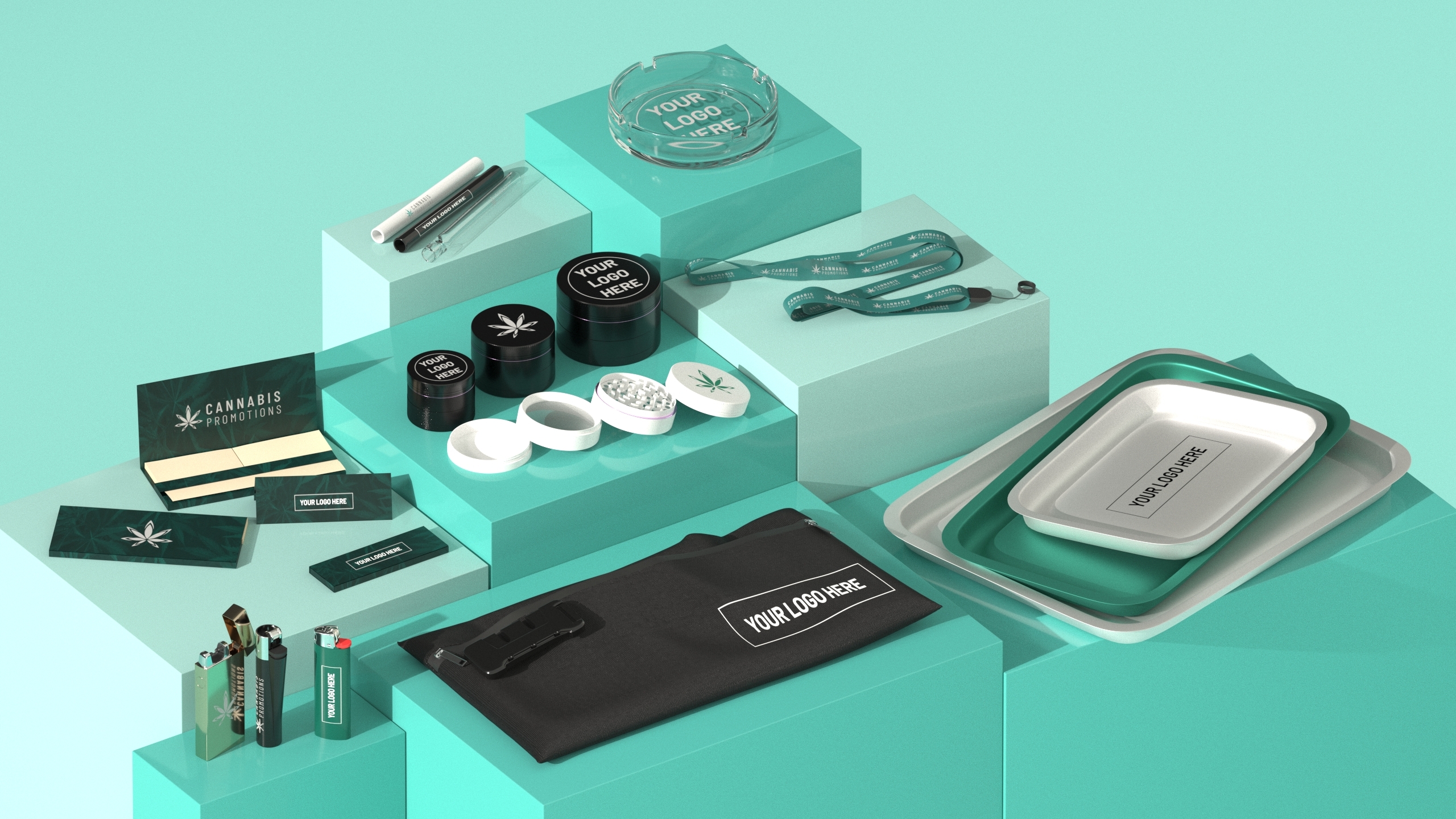
Pew Research has been tracking public opinion on cannabis legalization for years. Going back to the ‘60s, 84% of people thought it should be illegal. Even as recently as 2008, 60% believed that it should remain outlawed. Those numbers flipped dramatically in the 2010s, now climbing to nearly 70% of people believing it should be legal, and only 29% believing it should be illegal. That same study found that 50% of Americans have tried marijuana.
Beyond being legal in almost half of American states and Washington D.C., another 19 states either allow cannabis for medical usage or have at least decriminalized it. It’s only fully illegal in Idaho, Wyoming, Nebraska, Kansas, North Carolina, and South Carolina.
As such, the growth opportunities in cannabis are exponential for both print/promo companies and their clients, Tickle says.
“In our first couple of years, we were doubling in size every six months,” he shares. “It’s constant growth.”
Getting in the Game
When Cannabis Promotions started in 2018, the primary focus was on bags. With legal recreational cannabis spreading, the increasing number of dispensaries would need bags for their various products like flowers, edibles, and oils — and Cannabis Promotions was there to provide them. The business evolved into packaging, but once distributors working with dispensaries started asking for other products, the team at Cannabis Promotions set a challenge for themselves: “Say what you want, and we’ll get it.” It started with T-shirts.
“We already had distributors who were going out on their own and selling dispensary clients shirts and stuff like that,” Tickle says. “There was just such demand. Every time they would come to us and say, ‘Hey, we need 10,000 of these metal grinders, we need 50,000 lighters,’ and we were just like, ‘All right, we’ll work on getting everything that we can possibly get and keep up with that demand.’”
The cannabis market from a dispensary standpoint is like a gold rush right now. Each time a new vein is discovered — such as a new state legalizing recreational use — dispensaries stake their claim. To stand out, they often use promotional products or stock branded items to get their names out there. They go through those goods fast.
Often, the business comes from existing cannabis medical dispensaries that open new locations in the state that just legalized recreational weed. For those instances, Justin Herman, president of OnPoint Promotions, a Toledo, Ohio-based affiliate of iPROMOTEu, says that a lot of the work centers on products for employees. When it is a new business, the items might start on the employee level to boost the brand. The focus then can branch out to potential end-user customers that dispensaries want to attract.
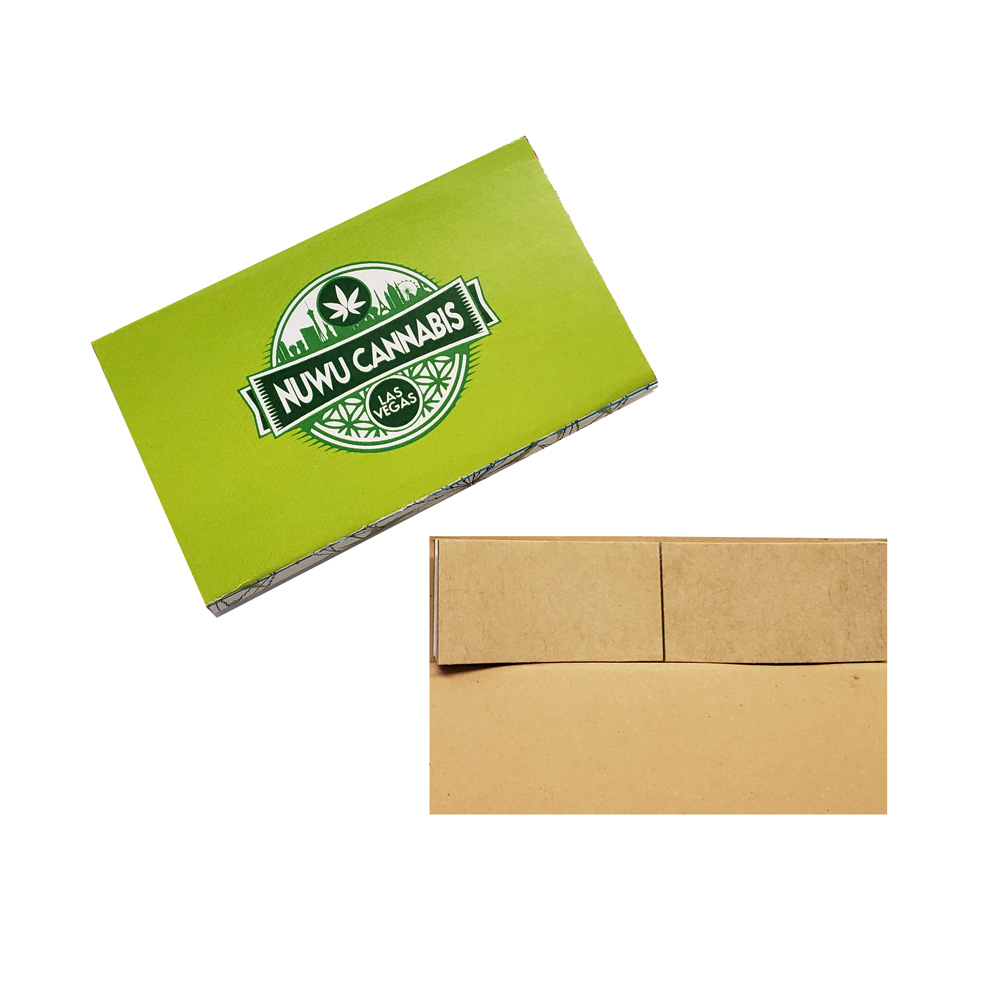
“It seems that a lot of these companies at first will just be ordering for their staff,” Herman says. “And when I say staff, I mean like marketing, marketing managers, and the executive team. And then once they start opening more dispensaries, obviously the reorders kind of come that way.”
Andrew Nunes, president of CB Disco, a Massachusetts-based distributor that works extensively with cannabis companies, says some common repeat order items for dispensary end-user customers tend to be related to the actual cannabis product itself. He also found that a keen driver of repeat orders is product placement.
“For example, if a dispensary places lighters in front of customers at the point of checkout, we find they have more repeat orders than dispensaries who put lighters behind glass cases,” Nunes says. “When the customer can pick up and touch the item, we believe they are more likely to purchase.”
Tickle has seen that, too. For him, it’s a matter of putting a product in front of a person who already wants that product.
“When a distributor working with dispensaries comes to us and says, ‘We want to buy 10,000 of these every month, is that something you can do or would be interested in?’ it’s really nice adding a product based on a demand that’s already there from a customer who’s ready to buy,” Tickle says.
At the end of the day, dispensaries are consumer-facing companies with repeat customers across wide demographics. But they’re not the only cannabis market end-buyer group that print and promo purveyors can serve. The growers cultivating the product want to market themselves to the dispensary clients, and merch firms can help with that, providing everything from branded accessories used in the consumption of cannabis to more traditional promotional items.
“We can do almost anything for the cannabis market — apparel and drinkware, for instance,” says David Heldt, marketing director at New York-based supplier Tekweld. “Still, some of the most popular items are grinders and rolling papers that have custom branding where growers can put their name on it. We can and do also source silicone smoking accessories. Storage containers are very popular — these are the carryout bags or jars that hold cannabis.
Be Careful How You Market
While legalization movements are growing, it’s still tricky navigating the marketing and advertising waters in the world of cannabis.
In the U.S., while some states are fully legal for recreation, others are only legal for medicinal. Some have laws in place where recreational use isn’t legal, but it might be decriminalized in certain counties or cities. Others have outright bans. Also, it’s worth noting that any marijuana use is still illegal on the federal level.
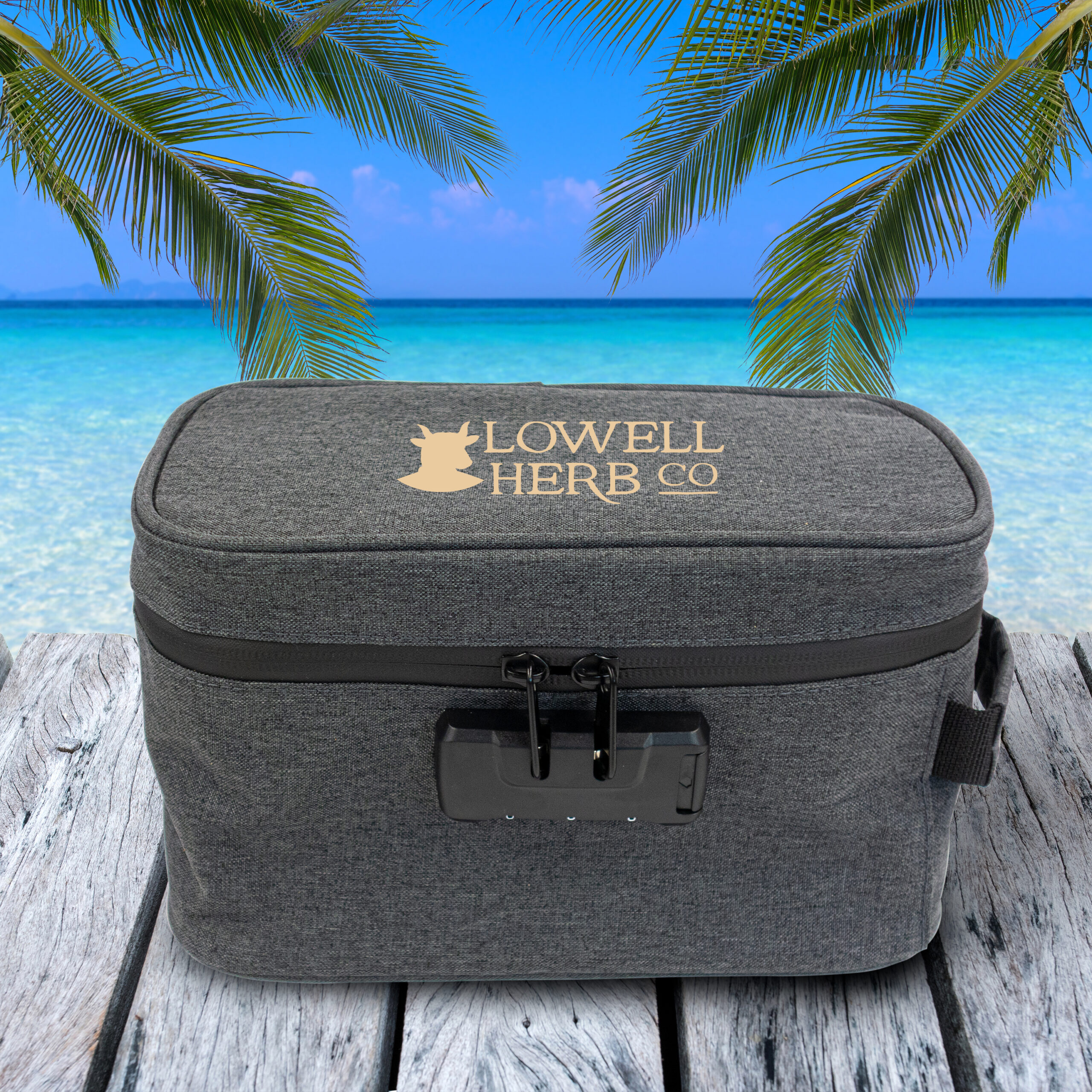
This makes for a situation where you can’t do things like simply blast promotional emails about brandable rolling papers to all of your customers.
“We actually got flagged,” Heldt says. “We had to be cautious about which states we were sending cannabis promotional material to. In states where it’s not legal, I can’t send marketing emails.”
Tickle and Cannabis Promotions had trouble early on with their financial institutions and credit card processors.
“The biggest thing is that you can’t really advertise cannabis products,” Tickle says. “So, for example, you can’t do Facebook ads for a grinder. You have to be careful, because you don’t want to lose your credit card processor. When we first started, every other month we had to get a new bank, a new credit card processor, all of these things. It was a very difficult thing to do. Now that it’s more legal in some senses, things have gotten much better. But there are definitely some things to pay attention to.”
The state-to-state basis of legal cannabis means that distributors need to know the rules in each state they do business in. Herman cites Pennsylvania’s status as a “non-combustion state” that hampers things like rolling papers or lighters.
“They don’t really order rolling trays and things of that nature because it’s not conducive to the products that sell in Pennsylvania,” he says. “It definitely helps having that kind of inside information. You sound more knowledgeable when you’re talking to customers.”
Back to Heldt and advertising grinders: He remembers one instance where an advertisement got flagged for showing ground up cannabis in a grinder. It’s not something the firm could advertise.
With that in mind, Heldt says that Tekweld takes a deliberate approach to getting the word out about its products. It doesn’t advertise them like a beer commercial, he says, where folks are sitting around a campfire or by the lake smoking a joint.
“We don’t want to appeal to minors,” he says. “And we don’t want to glamorize the use of cannabis.”
Fine Lines
Much like how tobacco is currently advertised abroad — that is to say, not advertised at all in some markets, like Europe — cannabis products are subject to advertising limitations. When it became federally legal in Canada on a recreational basis, for instance, the government ruled that companies couldn’t use mascots or cartoon characters for packaging or other products out of concern that it’d appeal to children.
In the United States, there are also regulations on a state-by-state basis that affect promotions that dispensaries would be able to use, which impact distributors of both print and promo.
For example, in Alabama, you can’t advertise cannabis products on apparel, portable signs, or billboards. In California, promotional materials and packaging can’t include pictures of edibles. In Colorado, you can’t have any outdoor advertising except fixed signs located on the same lot as the business that are used solely to identify the business. In Washington, D.C., you can’t use window signage to advertise pricing, or use the exterior of doors or windows to market products.
There are even laws in California that prohibit signage advertising cannabis products within a certain number of miles of the state line.
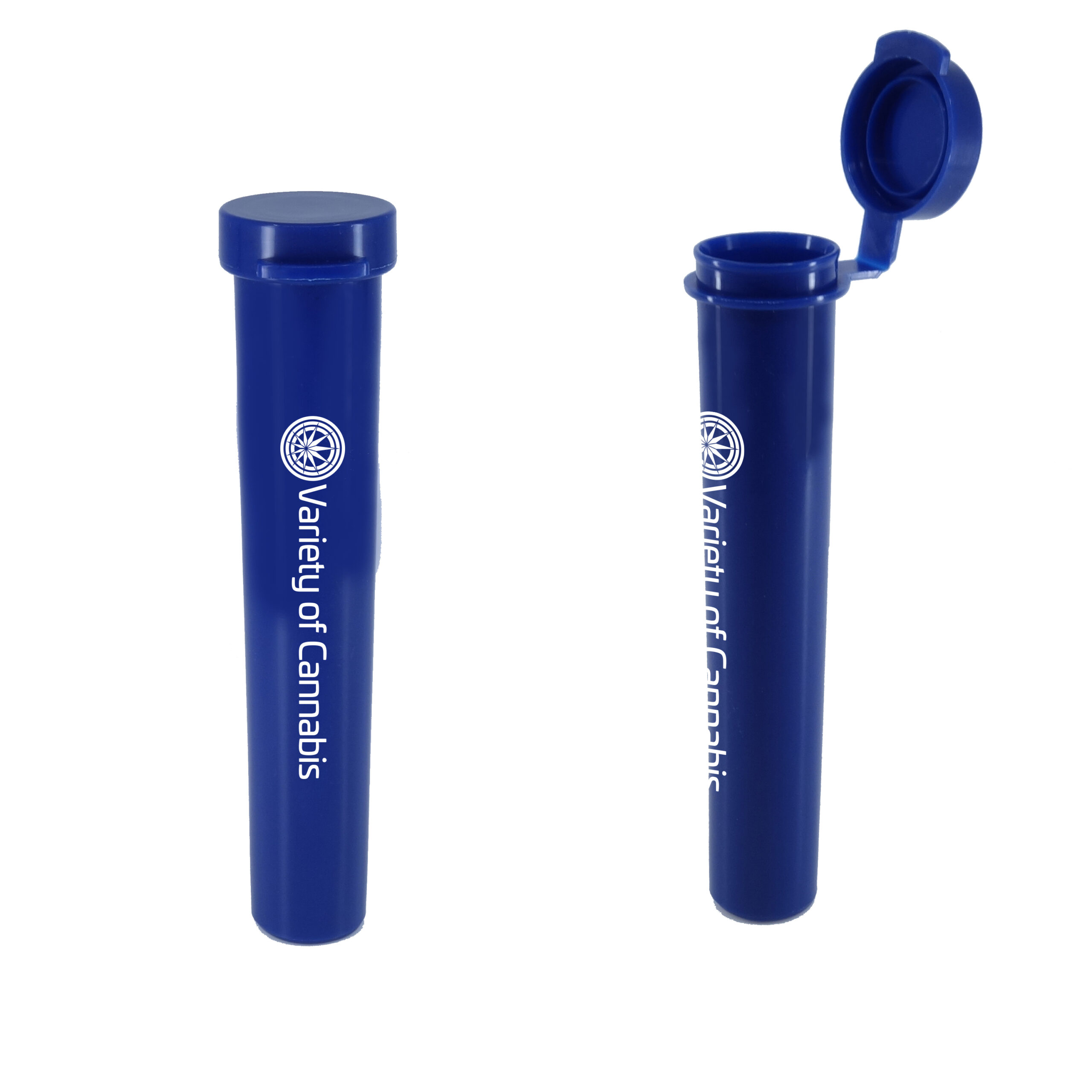
Perhaps even more strict than the advertising laws are the rules surrounding the packaging itself. While steering clear of fun cartoon characters is one way to deter minors from getting their hands on products they shouldn’t, childproof packaging is a way to literally do just that.
“You can’t make packaging that looks similar to something that a kid would eat,” Tickle says. “Don’t make something that’s like Skittles or promotes to kids to open the bag.”
Tickle says that to achieve the highest level of childproofing for its packaging products, Cannabis Promotions goes through rigorous testing. “They literally put our products in a room with 50 kids and say, ‘Try to open this,’” Tickle shares.
Reclassification Could Further Kindle Legal Cannabis
Meanwhile, an initiative at the federal level could be a boon to cannabis companies and help propel sales of print and promo solutions to marijuana industry businesses.
The U.S. Drug Enforcement Agency (DEA) is taking steps to reclassify marijuana as a less dangerous substance. The DEA’s under-consideration proposal wouldn’t federally legalize recreational marijuana, but it would recognize that cannabis has valid medical uses and reclassify it from a “Schedule I” substance to a “Schedule III” substance. Schedule I drugs are considered to have no medical benefits and be highly prone to abuse — think heroin, meth, and LSD.
The fact that cannabis could be rescheduled could impact the way distributors, as well as their dispensary and grower clients, do business in this space. For starters, it could result in dispensaries and other businesses having more money to allocate to their marketing efforts.
“What’s nice with the rescheduling is the likely tax benefits,” Tickle says. “Most cannabis companies can’t write off anything they do. With rescheduling, they’ll be able to, so that’s new money they’ll have. Imagine running a business without having any tax write-offs. The extra cost is crazy. With rescheduling, cannabis companies will have more to invest in promotional products and better kinds of packaging.”
Others are more muted in their expectations.
“Over time, cannabis businesses could have some additional capital for their marketing budgets,” Nunes says. “I think this change will take years. There are so many investors in the market still trying to get their return on their initial investments.”
Getting Greener
Beyond keeping an eye on rescheduling, distributors keen to sell into the cannabis space should be aware of another important development: There’s increasing demand for sustainable and eco-friendly print and promo solutions in the legal marijuana market.
Tickle and Cannabis Promotions see it clearly with their business in Europe, where demand for bio-based products has been consistent.
Stateside, the weed itself isn’t the only thing that is subject to legislative differences in the marijuana market. Just as cannabis legalization varies across state lines, each state has been enacting differing policies regarding plastics, packaging, and other products that affect the promotional and print markets.
“There are states, New York for example, where you have to have a percentage of postconsumer recycled plastic in packaging,” Tickle says. “You have places that have similar things. I recommend more sustainable packaging because, over time, and even when it’s federally legal, there will be state laws like, ‘Hey, it’s federally legal, but we’re in charge of what the packaging is like, and it needs to be bio-based’ or ‘it needs to be sustainable.’ Get ahead of that early and start building out those channels.”
One product that Cannabis Promotions introduced — a pre-roll tube made from hemp plastic — exceeded the company’s sales expectations by an enormous margin.
“The first sale ever was 2 million units,” Tickle says. “The first one. And then we’re building that out. So the bio-based stuff is really popular.”
Be a Marketing Partner
While distributors don’t need to partake in cannabis to sell into the space, they should develop a strong understanding of the market and bring their expertise to the table as they would with any end-client.
For starters, distributors need to understand the quality of the products they’re selling, Nunes says. The current wave of companies joining the cannabis market makes for plenty of competition — and some products are better than others.
“There are a lot of cannabis accessory options out there, and if you give someone a subpar product, they will not forget,” Nunes says. “If someone is expecting a BIC lighter and you provide one of the knockoffs, they will not be a happy customer. Sometimes the cheapest item isn’t what the client really wants.”
Herman says that distributors should be aware of the “big days” on the cannabis calendar. Think 4/20 and, in the age of concentrates and vape oils, 7/10. (7/10 looks like “OIL” if you flip it.)
“Marketing on those ideas and trying to come up with ideas for specific events that are just for the cannabis field or cannabis industry is important,” Herman says. “Obviously, you know, clients will do giveaways for stuff on the holidays or for things like Valentine’s Day, St. Patrick’s Day or the 4th of July, but knowing and capitalizing on cannabis-specific events is super important.”
Some of these events/happenings are regional, so distributors can appeal to particular markets throughout the year.
“If you work with somebody in the D.C. area, for example, there’s a cannabis fest every year,” Herman says. “So just knowing the scheduled events and what people are going to need items for creates opportunity.”
With cannabis being such a young industry in the U.S., companies getting started in the market may often be novices when it comes to marketing themselves. A distributor can be a guiding hand and expert voice on how to use branded products to these clients’ advantage.
“Most companies are only a couple of years old, so they don’t have the best marketing and promo experience,” Tickle says. “If you bring them the expertise and the numbers they can use, it really helps them out.”
Once you’re a trusted partner, the repeat orders will continue, and you grow with the client as they grow. Indeed, Tickle says that getting one customer could yield repeat and new orders by default, especially as a client’s business grows within the cannabis market.
“They might’ve started with four stores, but now they have 50,” Tickle says. “I’m always telling people, ‘Get in when you can, because it’ll grow with you.’”
Industry Insight: Beyond THC
The cannabis market isn’t limited to mind-affecting THC products. Cannabidiol (CBD) has experienced a health and wellness revolution, with products used for aches and pains, mental health, and more. Plus, CBD is legal in all 50 states and widely accepted.
All this makes the CBD niche potentially fertile ground for print and promo sales.
Forbes reports that about 65% of U.S. adults believe CBD is safer to consume than alcohol. The same study found that 62% of surveyed adults use a CBD product to treat a medical condition specifically — the most common being pain, anxiety, and depression.
Last year, a Precedence Research study found that the U.S. CBD market for health-related items was worth an estimated $7.81 billion; it’s projected to pass $31 billion by 2033. In North America, more people are learning about CBD benefits and buying more of it. Because of this, North America generated more than an estimated 60% of global CBD revenue last year.
In 2022, a Statista study found that the most commonly used CBD items used by adults in the U.S. were gummies or other edibles (58%), capsules (55%), oils/tinctures (55%), and lotions (53%).
Much like sunblock, lotions, or other products in the healthcare and personal care sectors, these are items that require labels and packaging that distributors could sell, to say nothing of the products themselves. And of course, every CBD brand likely needs all of kinds of merch.

